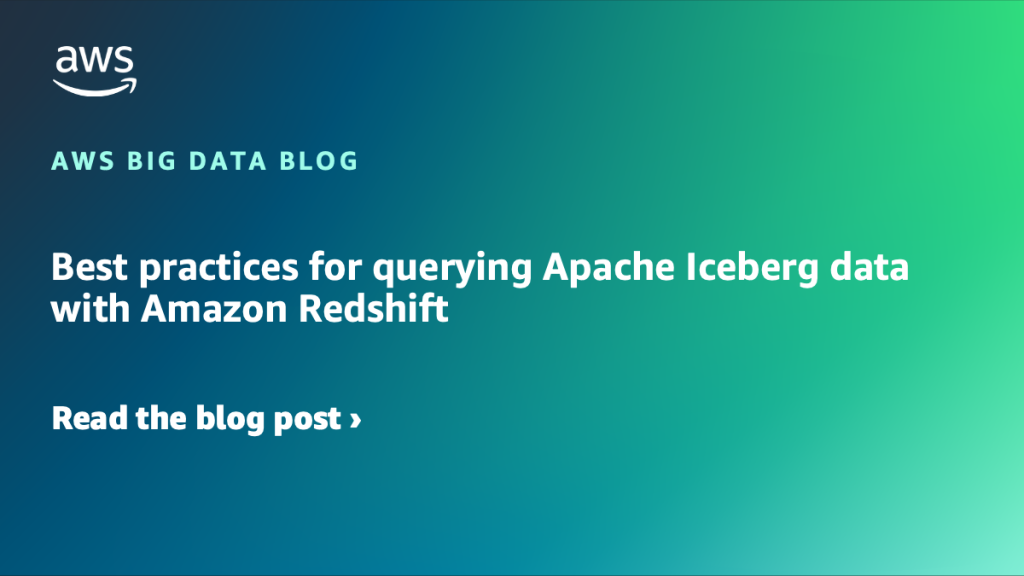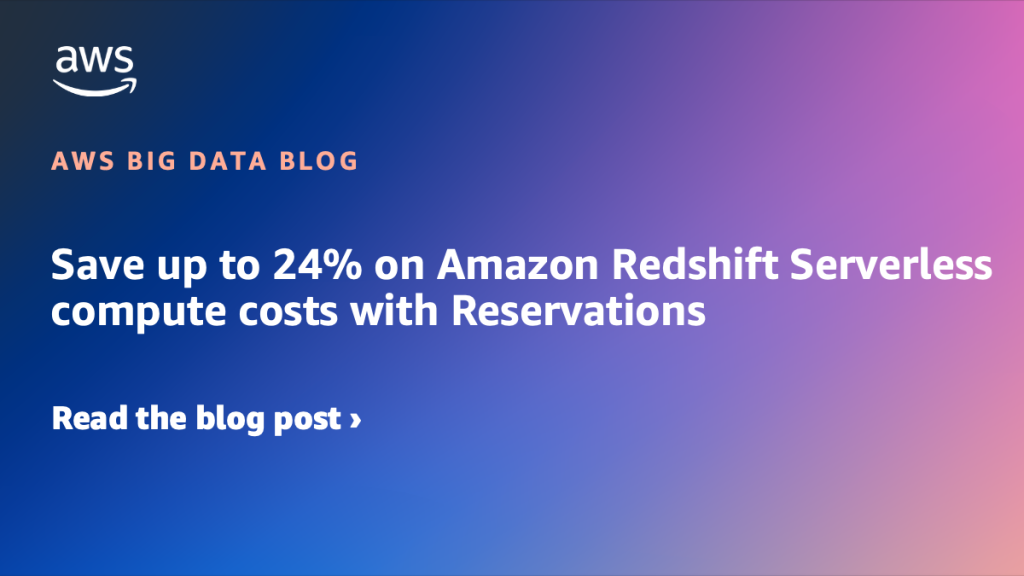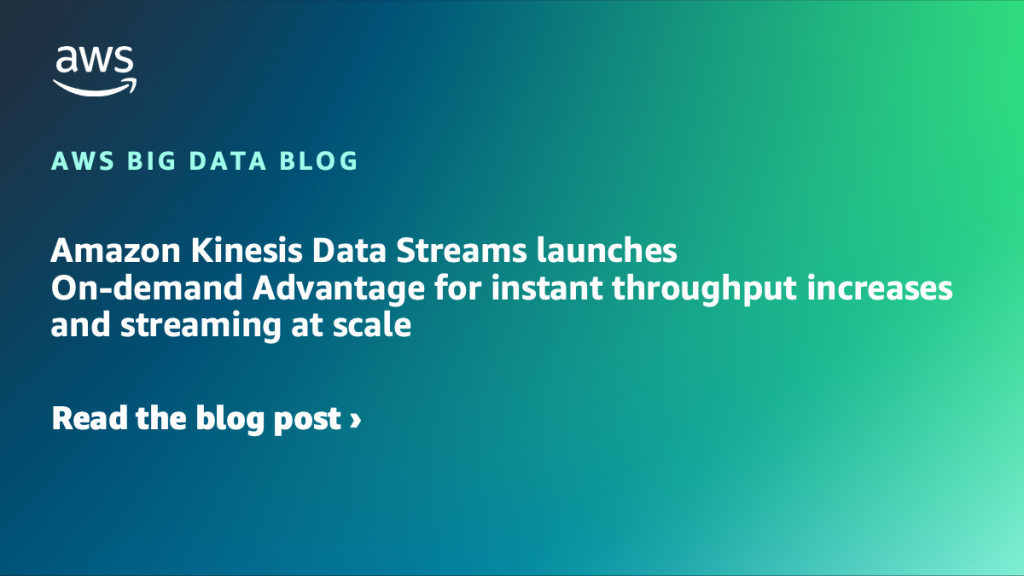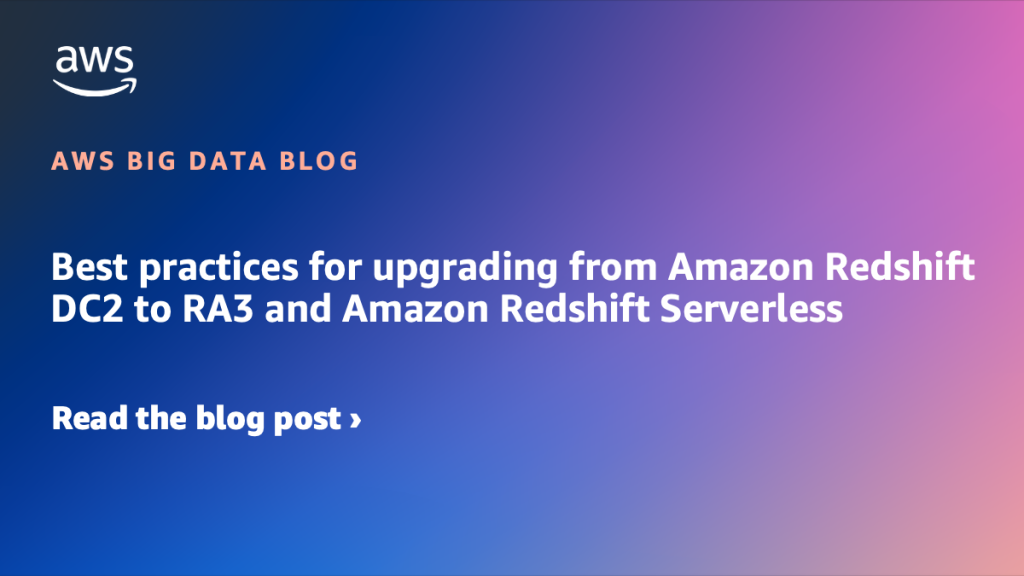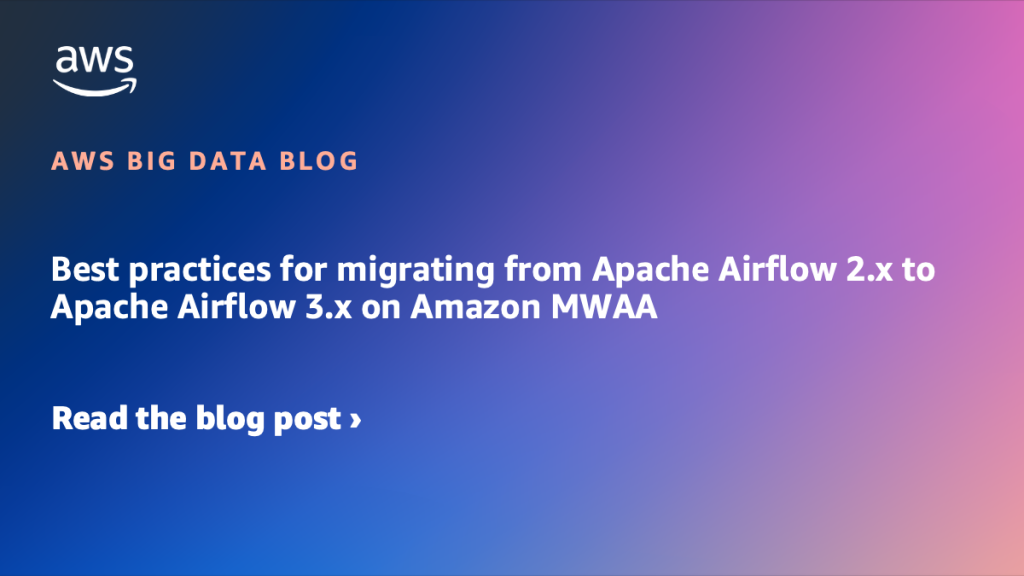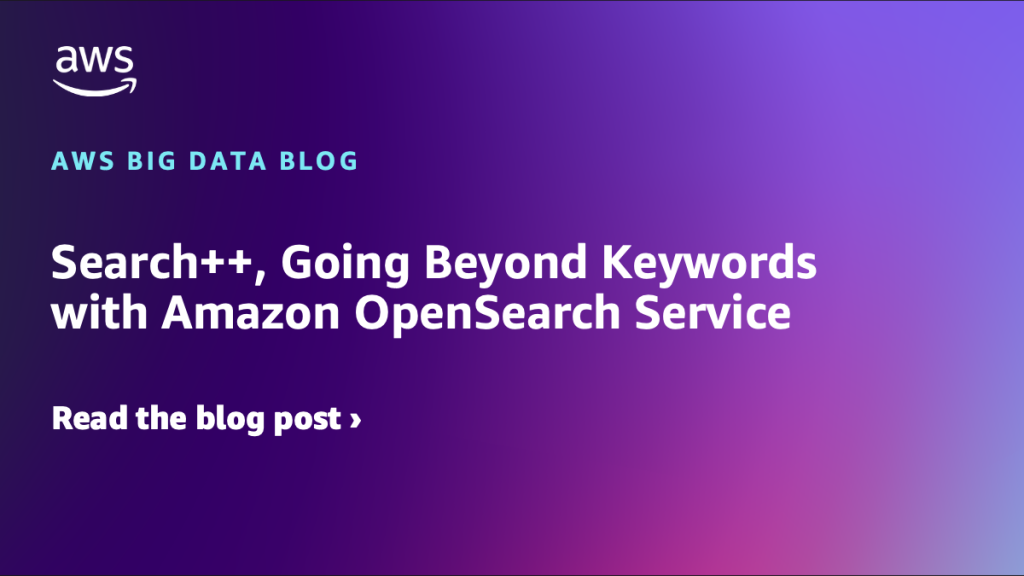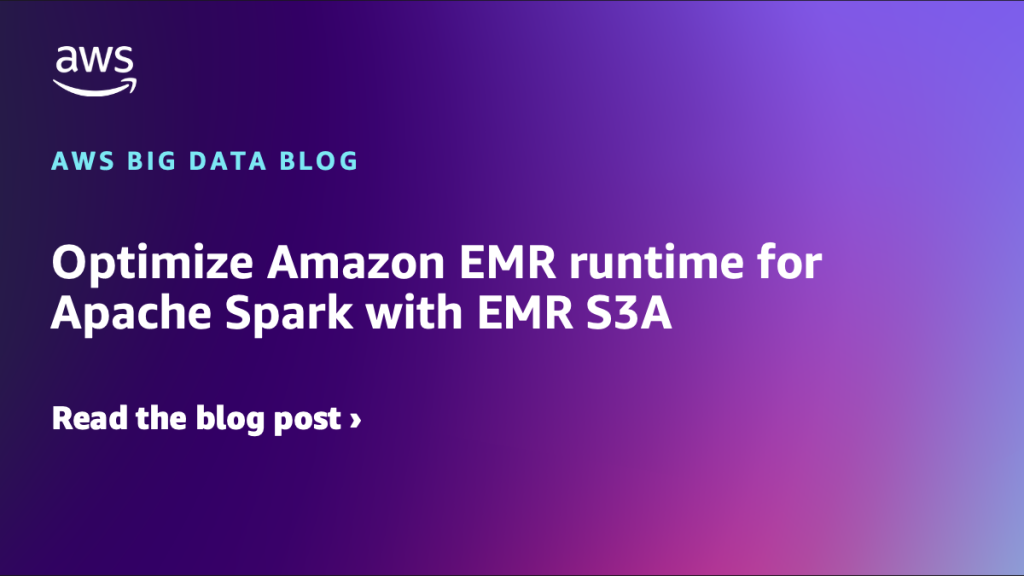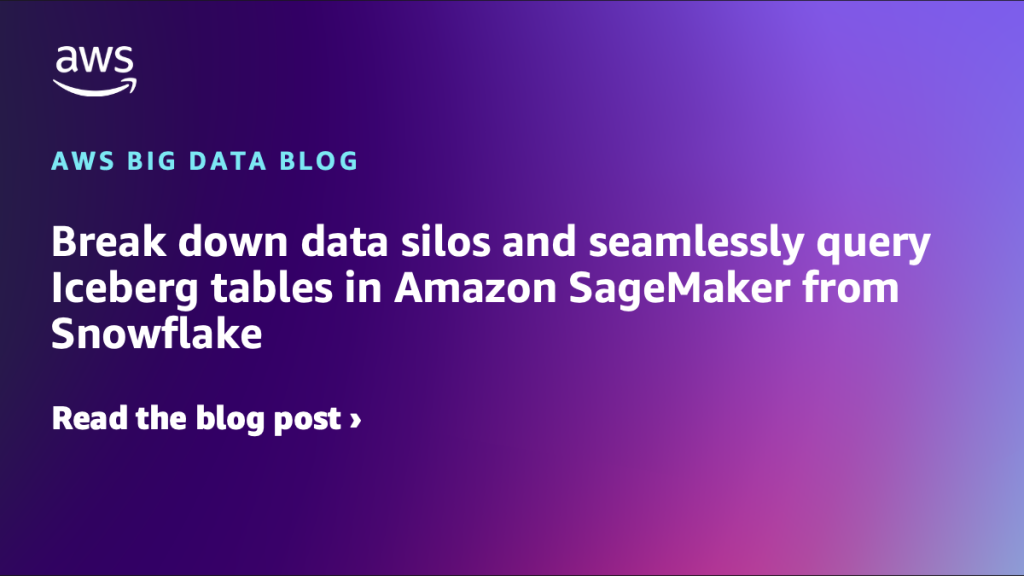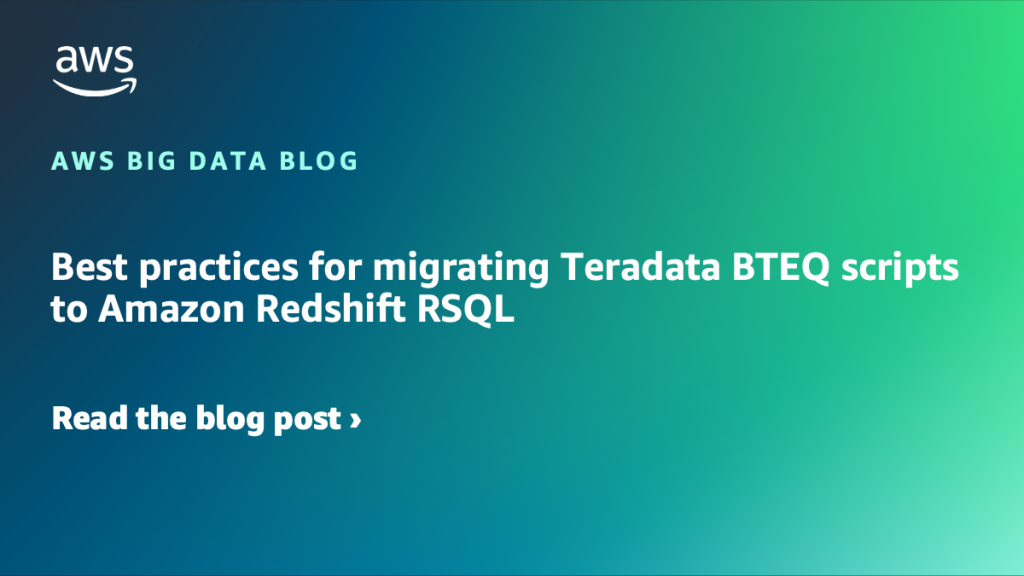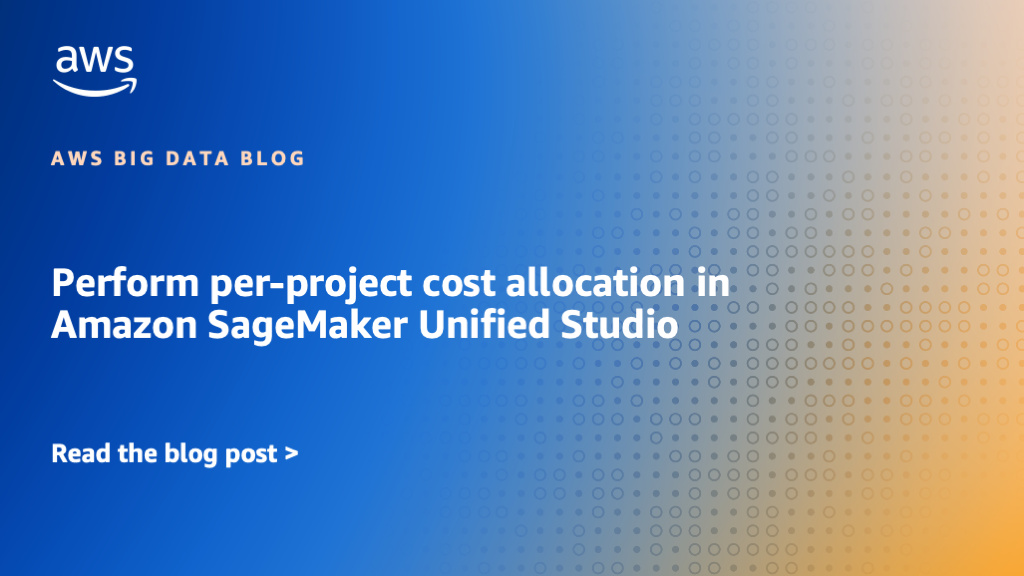AWS Big Data Blog
Category: Best Practices
Best practices for querying Apache Iceberg data with Amazon Redshift
In this post, we discuss the best practices that you can follow while querying Apache Iceberg data with Amazon Redshift
Save up to 24% on Amazon Redshift Serverless compute costs with Reservations
In this post, you learn how Amazon Redshift Serverless Reservations can help you lower your data warehouse costs. We explore ways to determine the optimal number of RPUs to reserve, review example scenarios, and discuss important considerations when purchasing these reservations.
Amazon Kinesis Data Streams launches On-demand Advantage for instant throughput increases and streaming at scale
Today, AWS announced the new Amazon Kinesis Data Streams On-demand Advantage mode, which includes warm throughput capability and an updated pricing structure. With this feature you can enable instant scaling for traffic surges while optimizing costs for consistent streaming workloads. In this post, we explore this new feature, including key use cases, configuration options, pricing considerations, and best practices for optimal performance.
Best practices for upgrading from Amazon Redshift DC2 to RA3 and Amazon Redshift Serverless
As analytical demands grow, many customers are upgrading from DC2 to RA3 or Amazon Redshift Serverless, which offer independent compute and storage scaling, along with advanced capabilities such as data sharing, zero-ETL integration, and built-in artificial intelligence and machine learning (AI/ML) support with Amazon Redshift ML. This post provides a practical guide to plan your target architecture and migration strategy, covering upgrade options, key considerations, and best practices to facilitate a successful and seamless transition.
Best practices for migrating from Apache Airflow 2.x to Apache Airflow 3.x on Amazon MWAA
Apache Airflow 3.x on Amazon MWAA introduces architectural improvements such as API-based task execution that provides enhanced security and isolation. This migration presents an opportunity to embrace next-generation workflow orchestration capabilities while providing business continuity. This post provides best practices and a streamlined approach to successfully navigate this critical migration, providing minimal disruption to your mission-critical data pipelines while maximizing the enhanced capabilities of Airflow 3.
Enhance search with vector embeddings and Amazon OpenSearch Service
This post describes how organizations can enhance their existing search capabilities with vector embeddings using Amazon OpenSearch Service. We discuss why traditional keyword search falls short of modern user expectations, how vector search enables more intelligent and contextual results, and the measurable business impact achieved by organizations like Amazon Prime Video, Juicebox, and Amazon Music.
Optimize Amazon EMR runtime for Apache Spark with EMR S3A
With the Amazon EMR 7.10 runtime, Amazon EMR has introduced EMR S3A, an improved implementation of the open source S3A file system connector. In this post, we showcase the enhanced read and write performance advantages of using Amazon EMR 7.10.0 runtime for Apache Spark with EMR S3A as compared to EMRFS and the open source S3A file system connector.
Streamline Spark application development on Amazon EMR with the Data Solutions Framework on AWS
In this post, we explore how to use Amazon EMR, the AWS Cloud Development Kit (AWS CDK), and the Data Solutions Framework (DSF) on AWS to streamline the development process, from setting up a local development environment to deploying serverless Spark infrastructure, and implementing a CI/CD pipeline for automated testing and deployment.
Best practices for migrating Teradata BTEQ scripts to Amazon Redshift RSQL
When migrating from Teradata BTEQ (Basic Teradata Query) to Amazon Redshift RSQL, following established best practices helps ensure maintainable, efficient, and reliable code. While the AWS Schema Conversion Tool (AWS SCT) automatically handles the basic conversion of BTEQ scripts to RSQL, it primarily focuses on SQL syntax translation and basic script conversion. However, to achieve […]
Perform per-project cost allocation in Amazon SageMaker Unified Studio
Amazon SageMaker Unified Studio enables per-project cost allocation through resource tagging, allowing organizations to track and manage costs across different projects and domains effectively. This post demonstrates how to implement cost tracking using AWS Billing and Cost Management tools, including Cost Explorer and Data Exports, to help finance and business analysts follow FinOps best practices for controlling cloud infrastructure costs.
